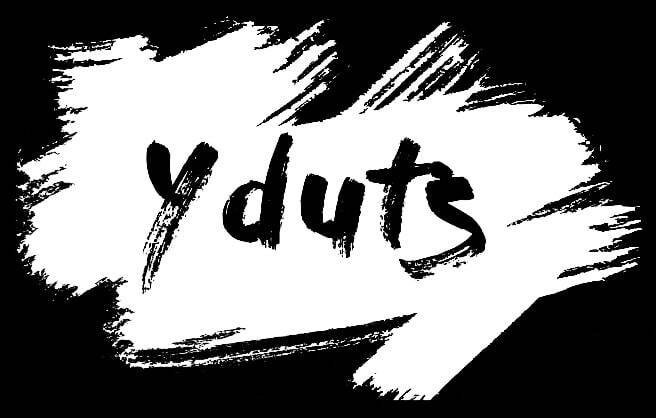During your professional journey, which job or project has brought you the most satisfaction? Why?
Looking back at all these years, one project out of a multitude of films and other projects I've worked on does indeed stand out — the production and post-production of the feature film "The Hunter" by Bakur Bakuradze, where I assumed the roles of production mixer, supervising sound editor, and picture editor. It was a truly immersive professional experience that provided multiple opportunities to learn, collaborate meaningfully, and share creative perception with an excellent crew, among other things.
Apart from your primary profession, do you have any hobbies or engage in other fields that complement your primary work? If yes, briefly describe them and explain how they enhance your overall work.
Yes, I am rather serious about making noise/experimental electronic music. I have been doing this for years, and my scores have been featured in a few films. I have also released albums and perform live.
I refer to this as a "hobby" because I intentionally avoid turning it into a commercial or money-making pursuit. This allows me to explore a plethora of creative and imaginative ways to express myself. It is crucial for me that it remains a "hobby" and never transitions into a "work" status. In my perception, this is paramount for my art to maintain its integrity and remain unaffected by genre conventions and listener expectations. This is my personal "me time," and it is not something I sell; rather, it is an investment in myself and my artistic journey.
As someone who has experience in your profession, what suggestion would you give people who are considering whether to study or work in this field?
My field, if we generalize it, is filmmaking and video production. My tip would be to strive for the convergence of your work responsibilities and artistic self. Search for your own unique voice and find ways to express this voice through your work. However, this doesn't happen overnight. It is a painstaking and gradual process, one that can never truly be completed but can be continuously approached. Never stop learning and growing until there's a solid six feet of soil between you and the surface.
Could you recommend one or a few independent educational resources available online in English that you find valuable for people looking to learn more about your profession?
There are plenty of websites I haven't been checking out lately. It's always useful to attend MIT courses on Coursera and explore courses offered by other U.S. universities. Many of their courses are available online for free. Additionally, find industry forums and Facebook groups where you can ask questions and engage with others. It's important to learn how to be immune to toxic online discussions of various kinds.
Arseni Troitski
Ramat Gan, Israel
The article deals with such areas of interest as:
Looking back at all these years, one project out of a multitude of films and other projects I've worked on does indeed stand out — the production and post-production of the feature film "The Hunter" by Bakur Bakuradze, where I assumed the roles of production mixer, supervising sound editor, and picture editor. It was a truly immersive professional experience that provided multiple opportunities to learn, collaborate meaningfully, and share creative perception with an excellent crew, among other things.
Apart from your primary profession, do you have any hobbies or engage in other fields that complement your primary work? If yes, briefly describe them and explain how they enhance your overall work.
Yes, I am rather serious about making noise/experimental electronic music. I have been doing this for years, and my scores have been featured in a few films. I have also released albums and perform live.
I refer to this as a "hobby" because I intentionally avoid turning it into a commercial or money-making pursuit. This allows me to explore a plethora of creative and imaginative ways to express myself. It is crucial for me that it remains a "hobby" and never transitions into a "work" status. In my perception, this is paramount for my art to maintain its integrity and remain unaffected by genre conventions and listener expectations. This is my personal "me time," and it is not something I sell; rather, it is an investment in myself and my artistic journey.
As someone who has experience in your profession, what suggestion would you give people who are considering whether to study or work in this field?
My field, if we generalize it, is filmmaking and video production. My tip would be to strive for the convergence of your work responsibilities and artistic self. Search for your own unique voice and find ways to express this voice through your work. However, this doesn't happen overnight. It is a painstaking and gradual process, one that can never truly be completed but can be continuously approached. Never stop learning and growing until there's a solid six feet of soil between you and the surface.
Could you recommend one or a few independent educational resources available online in English that you find valuable for people looking to learn more about your profession?
There are plenty of websites I haven't been checking out lately. It's always useful to attend MIT courses on Coursera and explore courses offered by other U.S. universities. Many of their courses are available online for free. Additionally, find industry forums and Facebook groups where you can ask questions and engage with others. It's important to learn how to be immune to toxic online discussions of various kinds.
Arseni Troitski
Ramat Gan, Israel
The article deals with such areas of interest as:
- Filmmaker
- Video producer
- Picture editor
- Production mixer
- Supervising sound editor
- Making noise/experimental electronic music




